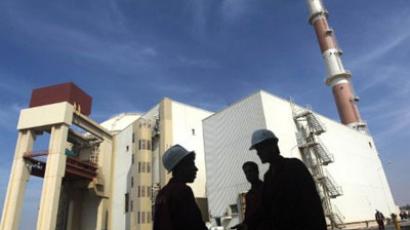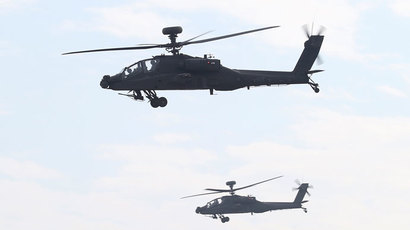US airstrikes to support Iranian Revolutionary Guard's offensive in Iraq?
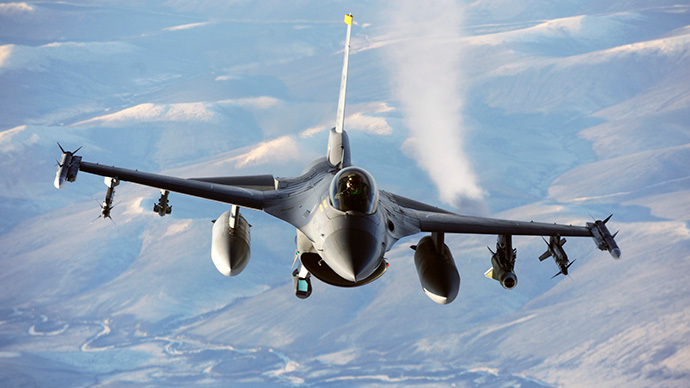
Iran deployed its Revolutionary Guard to help Iraq battle insurgents from a group inspired by Al-Qaeda, according to a recent report. In the meantime, the US is mulling airstrikes to support the Iraqi government.
On Wednesday, Al-Qaeda affiliate insurgents from the armed group Islamic State in Iraq and the Levant (ISIL or ISIS) conquered former dictator Saddam Hussein's hometown of Tikrit, marking the second major loss for the Iraqi government of Prime Minister Nouri al-Maliki. Earlier this week, insurgents captured Mosul, the second-largest city in the country. With jihadists threatening Baghdad and security forces unable resist the Sunni Islamists' assault, Maliki turned to foreign powers for help, getting responses from two unlikely allies, Iran and the US.
Two battalions of the Quds Forces, which is the overseas branch of the Iranian Revolutionary Guard, moved to Iraq on Wednesday, the Wall Street Journal reported. There they worked jointly with Iraqi troops to retake control of 85 percent of Tikrit, security forces from both countries told the Journal. Iranian forces are also helping guard the Iraqi capital of Bagdhad, as well as two Shiite holy cities that the Sunni jihadists are threatening.
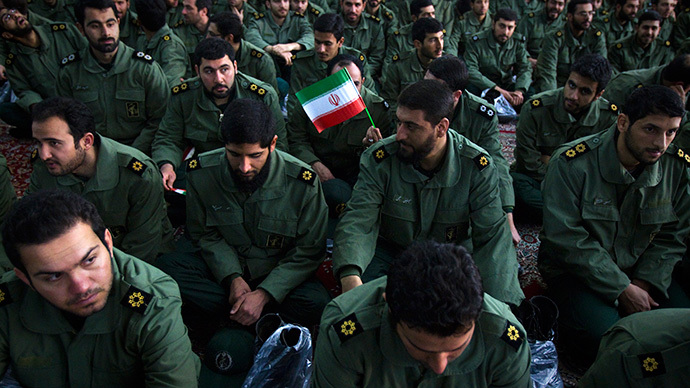
Meanwhile, on Thursday morning, US President Barack Obama declared that he doesn't rule out any options with regards to the ISIS takeover of cities in the northern region of Iraq. The administration and its national security team are discussing military options.
“We do have a stake in ensuring these jihadists don't get foothold in either Iraq or Syria,” Obama said.
Later in the day, White House Press Secretary Jay Carney clarified that US will not send ground troops to Iraq, but is seriously considering airstrikes that would help to drive jihadist militants out of their strongholds.
Iraq has privately indicated to the Obama administration that it would welcome airstrikes with either drones or manned aircraft that target ISIS militants in Iraqi territory, US officials said Wednesday.
If so, US may find itself assisting its archnemesis in the Middle East to fight against Sunni militias that enjoy support from one of America's closest allies in the region, Saudi Arabia. The ruling family of the kingdom has long been accused of supplying jihadists all over the region with arms and financial support, the New York Times reported.
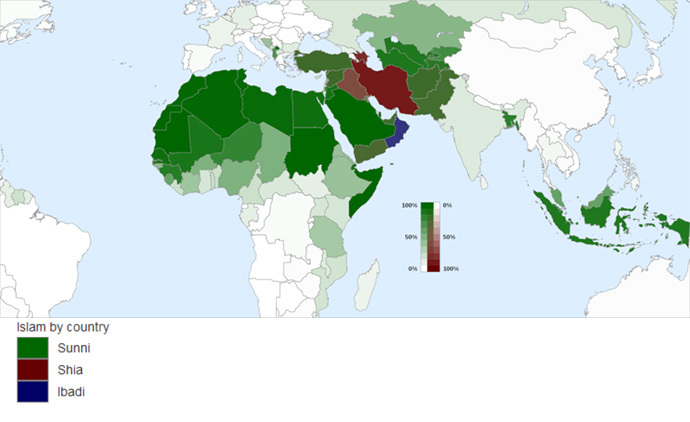
The US and Iran severed diplomatic relations in 1979, after Islamic militants following Ayatollah Ruhollah Khomeini seized the government and deposed the American-backed shah. Iranian students stormed the American embassy in Tehran, leading to the 444-day Iran hostage crisis. Following the 1979 Islamic Revolution, Iran was in a state of heavy international isolation. The US has led the world in debilitating sanctions against the Islamic Republic that have increased as the Middle Eastern country has developed its nuclear program.
Under Hussein’s dictarorship, Sunnis dominated the Iraqi political landscape, even though over 60 percent of Iraqis are Shia. In Iran, over 95 percent of the population is Shia. The two countries are the only majority-Shiite nations in the Middle East. (Over 1.1 billion Muslims around the world are Sunni, while less than 200 million Muslims are Shia.)
From 1980 to 1988, the two nations battled in a deadly war in which both sides deployed chemical weapons. The US sided with Hussein during that war, but turned against the dictator when he invaded American ally Kuwait in 1990, leading to the first Gulf War. Hussein stayed in power until the second Gulf War began in March 2003.
Once Hussein was captured by American forces in December 2003, the Shia majority regained political power. Al-Maliki is a Shiite Muslim and has become unpopular with Iraq Sunni minority, which has accused the government of discrimination. Since 2005, Iran and Iraq have had a flourishing relationship, and are now considered to be each other’s strongest allies.

Quds Forces have been active in Iraq for years, creating, training and funding Shiite militias that battled the US military after the 2003 invasion. Iran sees the battle for Iraq as “an existential sectarian battle between the two rival sects of Islam-Sunni and Shiite—and by default a proxy battle between their patrons Saudi Arabia and Iran,” according to the Wall Street Journal.
The US still sees Iraq as vital to its national interests, despite having pulled its troops out of the country at the end of 2011.
“What we've seen over last couple of days indicates degree to which Iraq is going to need more help,” Obama said, calling recent events a “wake-up call for the Iraqi government.”
"The next 9/11 is in the making," Sen. Lindsey Graham (R-South Carolina) said of the danger of the Iraqi insurgency.












